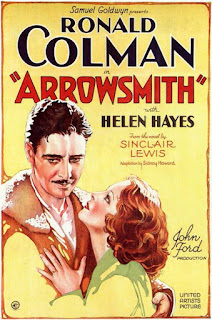Spoiler Alert: he's bad, but he'll die. So I like it.
THE BOOK-Written by John Updike, released 1960
THE MOVIE-Directed by Jack Smight, written by Howard B. Kreitsek, released 1970
THE STORY-They call Harry Angstrom "Rabbit." Hates to think, loves to fuck. Any more questions? A pitchman unable to sell himself on the merits of domestic stability. Hey, come back!
MIND THE GAP-Unsurprisingly, the man considered the greatest novelist of his generation couldn't write a decent sex scene.
Updike's second novel (and first of four in the so-called "Rabbit series") is loaded with short, supple sentences and infuriating ambiguity. The literary equivalent of a well-done steak. Or, if you aren't hungry, of gold-plated jewelry.
James Caan as the self-centered sleaze Rabbit is...monumentally meh. Generally an actor of considerable charm, here he gamely recites dialogue and, ah yes, runs. Carrie Snodgress as the wife can't provide even a sliver of a personality, and Anjanette Comer as the mistress probably forgot she was in the movie while acting in the movie.
Couldn't even get the soundtrack right! The tale of an immature young has-been cries out for minor chords. Instead audiences get pop songs. Lousy ones at that.
Everybody's got a hungry heart. But not everybody eats themselves sick. And not everybody's gonna cotton to Rabbit, Run. A riposte to Jack Kerouac's On The Road, it's an effective expose of the weak and wicked, a shattering glimpse at the havoc wreaked by the would-be heroically selfish. Reveal as it does the shortcomings of the Beat ethos, Rabbit nevertheless shares a proclivity for reductive portrayals of women. (Either receptacles to be filled or responsibilities to be avoided. Occasionally, both.)
Unsurprisingly, the Great American Novel concerns an adulation-starved coward whose motivations lead him to, among other unfortunate decisions, abandon two women pregnant with his child.
Look, the middle-class white guy's identity crisis can be told well or not, and I'm not so arrogant to say it shouldn't be told at all. The effects of cultural re-evaluation on the individual intrigues me. The multifaceted repercussions of steadfast belief fascinate me. Tell on, storyteller, tell on.
BETTER IN YOUR HEAD-Rabbit, Run left me feeling like the protagonist: unsatisfied. The novel is the preferable experience, given Updike's indisputable skills as a prose stylist elevates what is essentially a soap opera. Pretentious as twice-toasted focaccia, mind, but memorable so far as ankle socks go.
Also, I'll never forgive the movie for foisting the sight of Jack Albertson sans facial hair upon mine eyes.







.jpg)






























